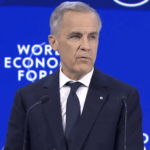
The process of electing judges and magistrates of the Supreme Court of Justice (CSJ) and the Court of Appeals, scheduled to begin in early July, will be a new test of the strength of the corrupt pact in Guatemala, a country that last year elected President Bernardo Arévalo for his firm message of fighting corruption, but is beginning to despair due to the lack of signs of change to end the system of impunity that has co-opted justice entities.
At the request of Arévalo himself, the Special Observation Mission of the Organization of American States (OAS), composed of Rosa Celorio, Rodolfo Piza and Luiz Marrey, arrived earlier this week and met with the president to inaugurate its work in that nation. “During its stay in Guatemala City, the Mission will hold meetings with national authorities and other relevant groups,” the OAS said in a statement published in X on July 24.
According to investigations presented by the now-defunct International Commission against Impunity in Guatemala (CICIG), these elections are characterized by the practice of crimes such as influence peddling, buying wills and parallel negotiations led by politicians and businessmen who were arrested for corruption crimes.
MARICÁ VAN DER MEER (GETTY IMAGES)
In March, Arévalo asked the OAS for support. Several local civil society organizations are also constantly monitoring the process, not only because of the irregularities detected in the past, but also because, in the case of the judges, the Court of Appeal considers this to be a delayed election. There has been no replacement for four years.
The appointments to these courts will be “the main topic of national events” this year, says Pablo Hurtado, executive director of the Association for Social Studies and Research (Asies). “Last year, in the General Elections, Guatemala experienced a moment of great tension in which the results themselves were subject to scrutiny by the judiciary,” he says. In his opinion, this highlighted the importance of a judicial branch within the State. “Guatemalan society has become aware of the importance and relevance of the judiciary, especially in the face of cases of extreme judicialization of political matters.”
“The fact that the OAS agreed to send a mission is already an early warning of a situation in which there is insufficient citizen control or balance of power and, consequently, there are risks surrounding the co-optation of justice,” commented Álvaro Pop, director of the indigenous organization Naleb’. An article published by the independent media outlet Plaza Pública reveals that, after the expulsion of the CICIG from Guatemala in 2019, the Public Ministry led by the controversial prosecutor Consuelo Porras stopped investigating corruption structures and that at least 118 people who were arrested and/or accused of corruption were released from trials and prison.
In the last five years, more than 100 people, including judges, prosecutors, activists and journalists, have been criminalized and persecuted by the Public Prosecutor’s Office and the courts of justice.
Who will be the candidates?
The process of electing judges requires the formation of two nomination committees, one for each court. They receive the candidates’ resumes, in addition to interviewing and qualifying them, and then send a refined list of more than 200 candidates to the Congress of the Republic, which makes the final decision.
“The problem is that [o candidato] “He may be a very good person, but the system, through its operators, does not necessarily choose him. Therefore, our expectations are not very high, but we are hopeful,” said Pop.
The committees were formed in early June. The chairs of the nomination committees are rectors of two private universities, while their members will be judges of the Judiciary and representatives of the College of Lawyers and Notaries.
The next step is for Congress to swear in the members of both teams so that they can begin the electoral process. The provisional date for the event would be Wednesday, July 3. The names of the candidates should be known next month.

WELCOME VELASCO (EFE)
Via El País
Source: https://www.ocafezinho.com/2024/07/01/guatemala-eleicoes-para-a-suprema-corte-testam-a-forca-da-corrupcao/

